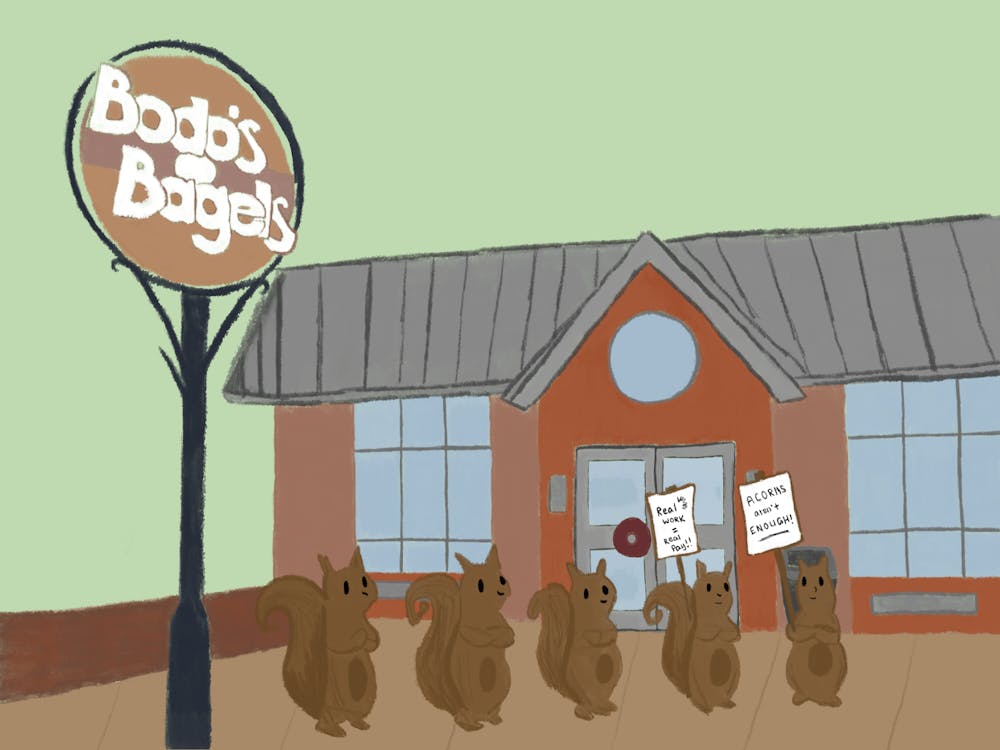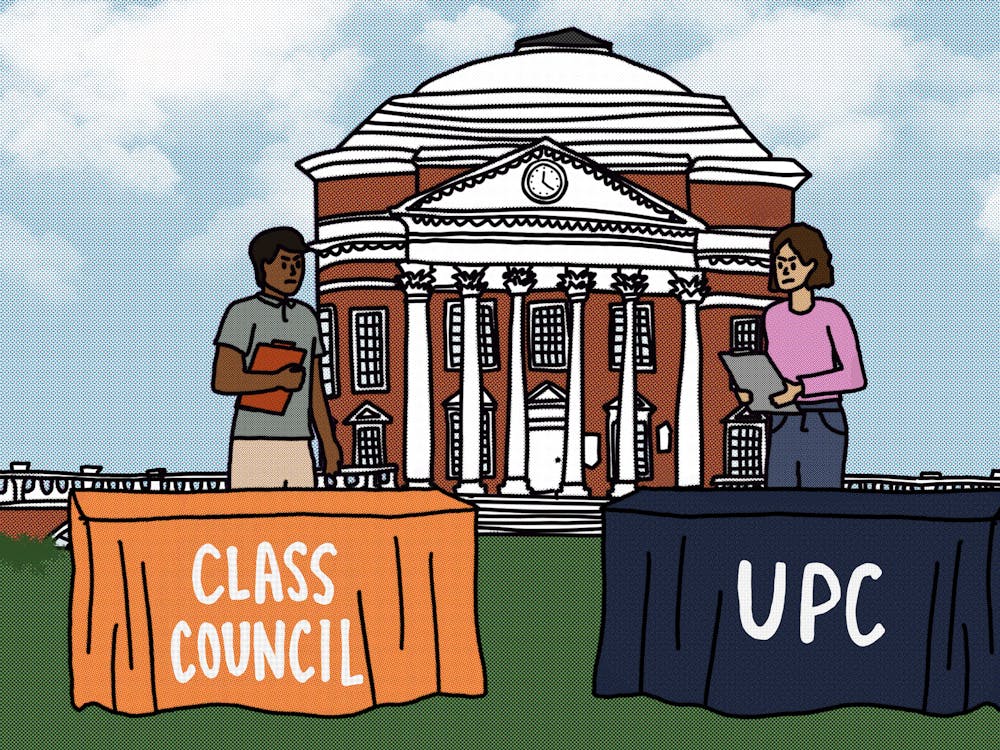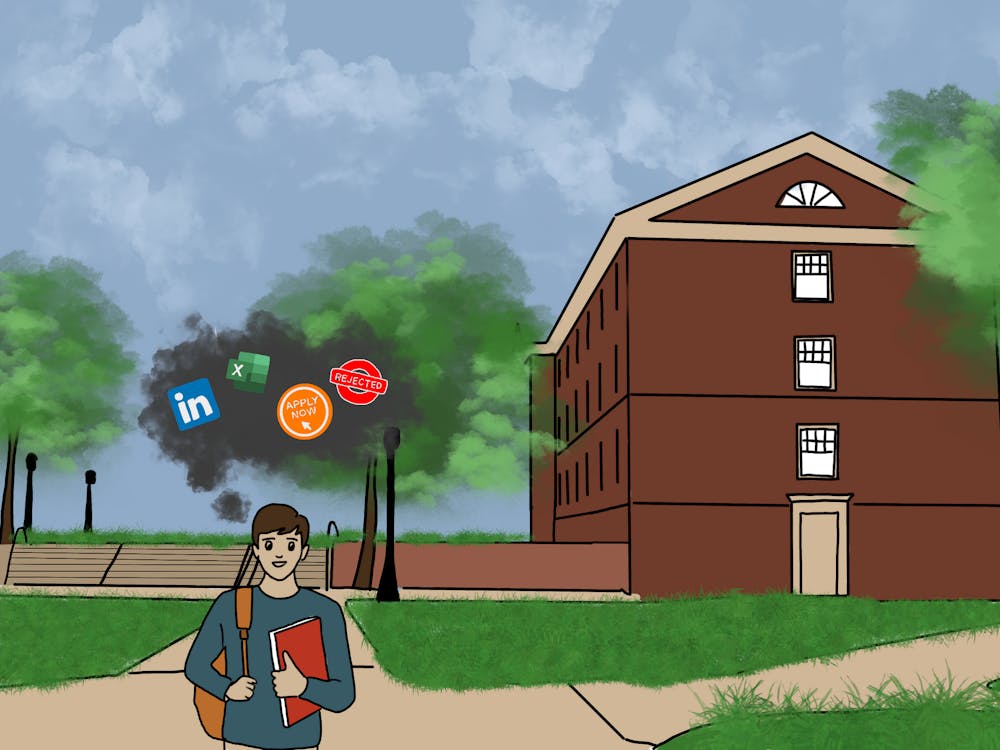Editor’s note: This is a humor column
This week, an unlikely group discovered their collective power as workers by unionizing — a community of University squirrel workers now known as the Squirrel Workers’ Guild.
The University community first became aware of the Guild after their landmark strike Saturday morning. On the 30th anniversary of the start of squirrel labor at the University, the Guild representatives finally decided enough was enough and gathered outside of Bodo’s to advertise their cause to passersby. Striking squirrels shouted chants and sported homemade tree branch signs. Among others, the messages on the signs included “Real work = Real pay” and “Acorns aren’t enough!”
Experts have explained that these feelings of being undervalued are not new. Rather, they can be contextualized in relation to the history of squirrel labor at the University.
“It’s only in recent years that people have been made aware of the important role squirrels play here. Everyone is used to them being relegated to the background, but as the world started changing and the University became more technologically advanced, squirrels increasingly took on the jobs that humans didn’t want. Recently, they have only become more isolated from the mainstream,” said Dr. Golden Oldie.
This was a feeling that was echoed by many of the Guild representatives themselves. Apparently, the only compensation the squirrel workers have received since the beginning of their tenure was a seasonal acorn bonus back in 1997. Beyond that, the University has refrained from providing the Guild members with any other compensation, even as inflation levels have skyrocketed.
“We’ve worked for the U.Va. community long enough and have gone unthanked, unrecognized and unpaid. All we want is a fair wage for the efforts we’ve made to keep the University running,” said Senior Guild Representative Squirrel Squirrelingson.
In response to this continual economic mistreatment, the squirrel workers felt that they had no choice but to join a long American tradition of unionization, working to undermine the individualism of capitalism by emphasizing collective power.
“Unions stem from living under a nightmarish, capitalist regime. As almost everyone has felt that sinking feeling of dread when they remember that their only purpose in this country is to get a job, make money and eventually die, unions are often viewed as the one saving grace looking after the interests of the modern American worker. Perhaps this is why the University squirrels have taken up the mantle of worker unity,” said University History Prof. Freed Asquirls.
Word about the Guild’s initial action spread across Grounds fast, and chatter about the striking squirrels went absolutely nuts, reaching its peak Monday once classes started and the effects of the strike became visible in the extreme. Firstly, copious complaints were made about the unavailability of academic buildings, with many students and professors reporting that even with their IDs, the buildings remained locked. This continued for the rest of the day, with all classes indefinitely canceled until the snafu was managed by maintenance.
Shortly after the initial lock-out complaints, the Guild’s Instagram — with the help of an anonymous Media Studies major who was bribed with a bag of corn chips and a single American dollar — posted a video statement featuring Active Guild Member, Squirrel Squirr-El.
“My name is Squirrel Squirr-El, and for the past twenty years, my team and I have single-handedly made sure that each of the University’s buildings remained unlocked each morning and locked each night. I have not worked my fluffy tail off for people to assume the doors were taken care of automatically, and I definitely have not worked this hard to earn nothing,” said Squirr-El.
Following the lock-out Monday, the Guild made similar efforts to further their movement and demonstrate the labor they perform for the University.
The Guild initiated an email strike Tuesday, shocking many by revealing, via a Guild email, that emails from the University are not automated, but rather sent out day after day by an entire team of unpaid squirrel employees who work in the basement of Clark Library.
The email message said, “Communication runs on squirrel power. The University runs on squirrel power. Squirrel power to the squirrel people!”
On Wednesday morning, the Guild mobilized during tours of the University, refusing to clear walkways for potential students and their families. By instigating a sit-in at tour destinations and pathways, the Guild successfully prevented anyone from getting a decent feel for the University.
As members of the University community wait with bated breath to see what will become of the Guild, one prevailing opinion has surprisingly emerged — students don’t think the University should meet the Guild’s demands at all.
Second-year College student Burlington Coatfactory said, “Look, if the squirrels on strike mean I don’t have to go to class, I don’t get spammed with emails and I don’t have to pass a million tour groups, I say let them strike forever!”
His statement, issued during an informational session on the Guild to educate students, was met with resounding applause from students, suggesting that this sentiment is widespread.
By Wednesday evening, word of the Guild’s antics had reached Carr’s Hill, via a squirrel sleepout protest on the lawn that began at 7 p.m., leading a nervous University President Jim Ryan to put out a statement that vehemently defended his identity as a squirrel ally.
“Students, staff and valued members of the Squirrel Workers’ Guild — I am shocked and appalled at the flagrant disregard for the truly great and good work our squirrel friends have been performing for the University. These unsung heroes deserve fair wages and fair hours, and it is in everyone’s best interest that we work with the Guild to right the injustice that’s been done to them.”
Following the public statement, the Guild released an update of their own, announcing via Instagram that their organization had successfully begun negotiations with President Ryan and members of the Board of Visitors.
The Guild is expected to reach an agreement with the University by Monday, but with tensions on the rise, no one is quite sure how the acorn will fall.







